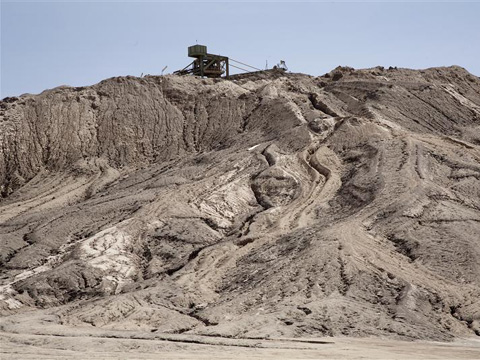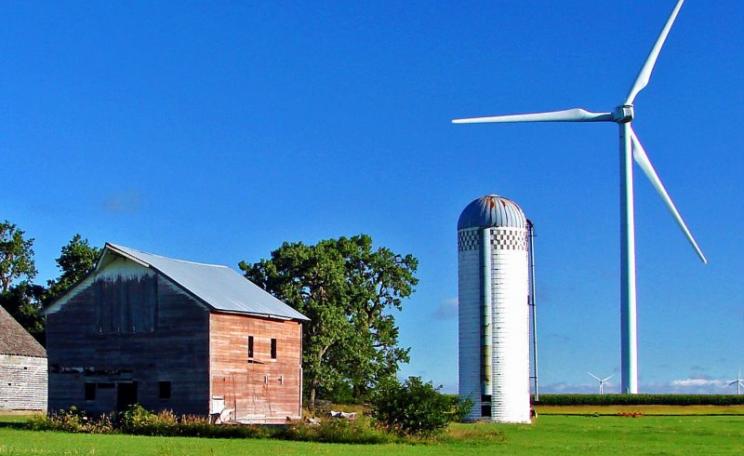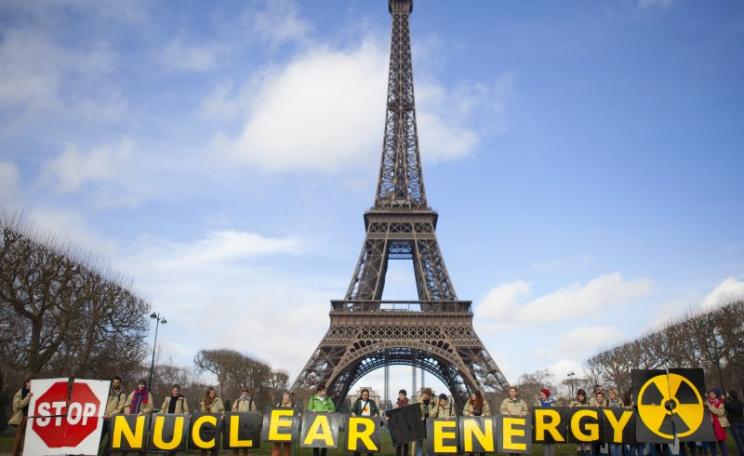The first planning applications for new nuclear power stations could be submitted before the end of 2010
The first planning application for the construction of a new nuclear power plant could be submitted before the end of the year, according to the Government's independent advisors, the Committee on Climate Change (CCC).
It said 'good progress' had been made on regulatory approval with two new designs under assessment by the Environment Agency and plans for decommissioning and waste expected to be published by the Government this summer.
In its second annual report to Government on progress made towards legal reductions in greenhouse gas emissions of 34 per cent by 2020, the Committee said new nuclear plants were a 'cost-effective form of low-carbon generation'.
However, Friends of the Earth has said the costs of waste and decommissioning made nuclear far more costly and that the industry was likely to require tax breaks, security and insurance costs and a guaranteed high price for its energy. A recent poll found just 38 per cent of the public believed the benefits of nuclear power outweighed the risks.
Slow renewables progress
While nuclear is on track, progress on renewables has so far only been 'modest' said the Committee and a 'big, big ramp up' in offshore wind in particular was called for over the next two years. It said a total of 23GW of new wind capacity was needed by 2020, as it was the only low-carbon technology ready for large-scale deployment.
It said the role of a new Green Investment Bank (GIB), currently under consideration by the Government, was crucial in making money available for companies investing in highly capital-intensive projects such as offshore wind farms. It said between £110-120 billion of investment was needed in the renewable sector by 2020 to keep the UK on track for meeting emission reduction targets.
Fertiliser tax and electric cars
The Committee's latest report made a number of other key recommendations, notably mooting the idea of a fertiliser tax to cut emissions from the application of nitrogen fertilsers and said the Government's 'soft touch' on cutting emissions from the agricultural sector were not working.
It also backed calls for continued investment in electric cars and said the UK should aim to have 1.7 million on the road by 2020. The previous Government had promised £260m of funding earlier this year to subsidise the cost of the new cars, and to create a battery charging network. It is not yet clear if the new Government will honour this commitment when it announces its spending cuts later this year.
Useful links
The Committee on Climate Change (CCC)
| READ MORE... | |
 |
NEWS ANALYSIS Zero carbon Britain: how to get there in 10 steps A blueprint for how Britain could reduce its greenhouse gas emissions to zero over the next 20 years by a combination of electrification, insulation and a massive scaling up of offshore wind |
 |
INVESTIGATION Think nuclear is clean energy? Ask the Nigeriens As the new nuclear renaissance grows, so too does uranium extraction. In Niger, which boasts some of the world's richest deposits, NGOs say that the poor are being exploited for the West's 'clean energy' |
 |
NEWS Nuclear power debate still divides UK public opinion The majority of the public feels the risks of nuclear power outweigh the benefits and would prefer to see more investment into renewable energy, a new poll shows |
 |
COMMENT The Government has found a backhanded way to subsidise nuclear power 21st century nuclear power needs a 21st century subsidy... no blank cheques this time - just an apparently green tweak to the emissions trading system, and voila! |
 |
NEWS Government approves ten new sites for nuclear power Environmental groups say nuclear power will create a legacy of waste and undermine the UK's drive towards an economy based on renewable energy |








